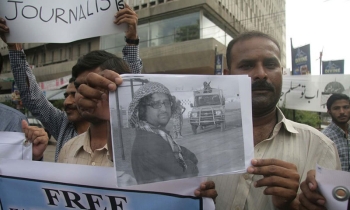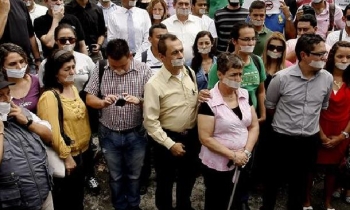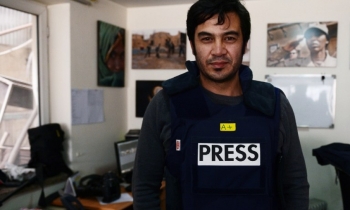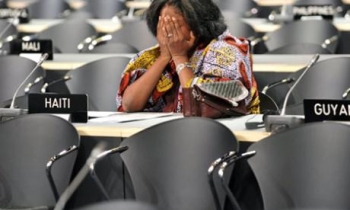It is a perennial dilemma confronting every news-breaking journalist.
Take the editor M. K. Venu’s conversations with the lobbyist Niira Radia, as published by CounterMedia and other websites. Anyone who knows Venu will never doubt for a moment that where money goes, he is clean as a whistle. You simply cannot imagine a businessman’s bagman showing up at his door and leaving a wad of 1,000-rupee notes on his desk.
Yet, as his chats with Ms. Radia show, Venu operated on the borderlines of familiarity and active connivance in helping that hugely pushy lady with background information and tips about how best to go about getting results. As, for instance, when he is heard steering Ms Radia to give her story to CNBC, not the mast he worked for.
Did he go too far? Perhaps he did.
News, it is said, is something someone wants suppressed. The rest is advertising. The problem in the news business is that sources, as much as your readers, need to “trust you” for your game to get off the ground. The scoops begin to flow when your sources trust you not to tell on them.
Problem is, with the multiplicity of news vendors even the thinnest piece of exclusive information has begun to take on inordinate value to reporters. They need to please bosses who forever demand that their underlings bring in stuff that other outlets do not have. This gives flacks, corrupt officials, politicians and businessmen plenty of room to play journalists against each other. In the process, some of the best professionals drop their reservations about the information being handed to them and rush it into print or electronic screens.
Access is a heady thing and to be denied it is an awful feeling. This is why journalists tend, sometimes, to be too ‘close’ to their sources. Problem is if in doing so, they tend to take sides or get blindsided by a select few. Far too often, the other side isn’t given adequate opportunity, or time, to present their case. Some of it is wilfully done by the reporters. But surely a lot of responsibility must also rest on editors who do not call the writer into account for his words, or insist that he needs to see the viewpoint of the person under attack.
Unfortunately, that is what is happening in journalism today. Far too frequently these days, one often hears of journalists “belonging” to this camp and that. Hello, how about belonging to the journalism camp?
On a broader level, a yawning gap in Indian journalism is that, thanks to the frenetic pace at which the industry has expanded, many journalists lack proper training or grounding in the ethics of the trade. Accepted wisdom may be that journalists are born, not trained. However, the fact is, whether it is for the airline, hotel or any industry worth the name, training is essential to an efficient practice of the trade. This is why most of our news stories lack proper balance. The ‘to-be-sure’ often doesn’t exist in stories because writers haven’t always been told it is essential, editors are too busy or lack the conviction to enforce it, and what’s more, shrinking news columns often leave little space to carry the cautionary caveats that would round off a story. A well-trained journalist would instinctively spot the shortcomings in his story because he would be working against a mental template; the poorly trained one would never recognize it falls short.
Another interesting– it would have been amusing if the matter had been less serious– about the tapes posted on CounterMedia is the phenomenal egos of some of the journalists under mention. There was a time when the scribe took pride in being a fly on the wall and crafting the first draft of history. Now, it seems, he wants to bend historical forces himself by fixing Cabinet appointments, playing sides in bitter corporate feuds and even writing the law by entering Parliament.
As we point fingers at the rest of the world, perhaps the time has come for us to curl the thumb back at our own less-than-perfect faces.
Ravi Velloor is South Asia Bureau Chief at The Straits Times, Singapore.









